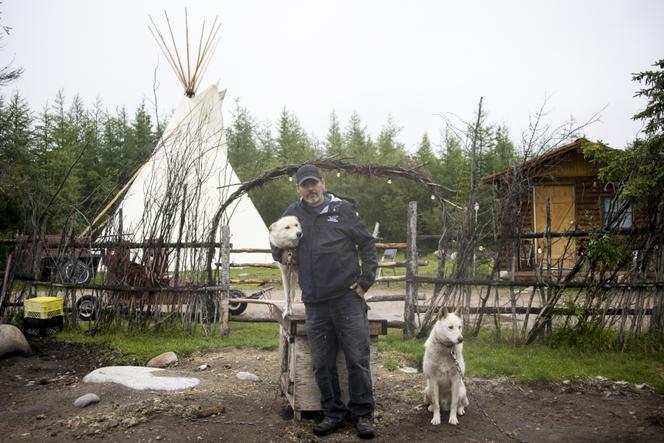

LETTER FROM MONTREAL

To attract tourists from all over the world, Canada has long gambled on the only card it thought it had: nature. It bragged about the immensity of its territory, the largest country in the world after Russia, its 47 national parks and thousands of kilometers of trails to be explored in sneakers or on snowshoes. It promised experiences like no other, from watching the Northern Lights in the Yukon (Canada's far north) to whales in the Gulf of St. Lawrence in Quebec. Officially founded on July 1, 1867, the country saw itself as untouched by any culture before the arrival of French and British settlers, so it sold what it had on hand – its lakes and forests.
But in recent years, as Canadians have slowly come to terms with their colonial history and the traumas they inflicted on the original peoples who inhabited the land thousands of years before their arrival, the Canadian tourism industry has also undergone a metamorphosis. It now invites travelers to immerse themselves in the cultures that Canada has long chosen to ignore: First Nations, Inuit and Métis.
At an event organized in Saskatoon, Saskatchewan, in September by Destination Canada, a public corporation dedicated to promoting the country, several representatives from these aboriginal communities came to express their interest "in letting the world know who they are." "Sharing our culture is a way for us to reclaim our history," explained Matricia Bauer, founder of Warrior Women, an association of aboriginal women committed to promoting their original knowledge. This Cree woman, who was taken from her family during the "round-up" of aboriginal children by the Canadian government in the 1960s with the aim of "assimilating" them, has herself rediscovered her own culture as an adult.
Now based in Jasper National Park in the Rocky Mountains of western Canada, where over 20 million visitors flock every year, Matricia Bauer welcomes tourists from all over the world to her fireside, drumming to tell them about the history of her people and their special bond with this land. "When you visit the Rockies, you're visiting me," she explained.
Over the past few years, members of the more than 600 aboriginal communities still present on Canadian soil have embarked on a number of entrepreneurial initiatives: some have become guides, while others have banded together to buy outfitters – tourist lodges offering hunting and fishing in the wilderness.
The Huron-Wendat of Wendake, located a few kilometers from Quebec City, were among the first in 2008 to offer an upscale museum, hotel and restaurant, as well as immersion in the culture of their ancestors. "They refuse all cultural appropriation, so they're proud to be masters of their own narrative," explained Andrew Germain Gros-Louis, marketing advisor for Tourisme Autochtone Québec, "whereas just a few years ago, the history inherited from the Jesuits and taught to Quebecers still spoke of them as 'savages.' Tourism allows us to move forward on the road to truth. Truth is the first step towards reconciliation," he asserted.
You have 38.26% of this article left to read. The rest is for subscribers only.
